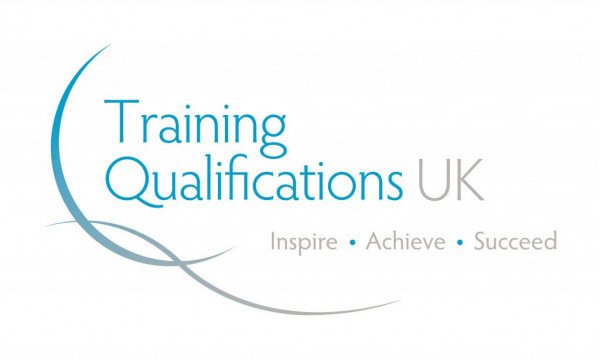Course overview
Highly accomplished sports scientists are able to think critically using the ‘scientific method’, are willing to experiment with new concepts and make innovative discoveries that can change the landscape of sports performance. Once you have the sports science knowledge in place, effective communication skills are also vital to educate athletes and coaches in how to harness your performance recommendations. In this course you will learn what it takes to support athletes and coaches to give athletes the platform to reach their peak performance levels. Below is a list of the key topics covered in this course:
Key topics covered in this course
- Functional anatomy
- Biomechanics
- Exercise physiology
- Fitness training and testing
- Nutrition for health and performance
- Sports psychology
- Coaching science
- Performance analysis
You can find out more detailed information about the course contents, potential career opportunities and more in the tabs above. Or alternatively, register your interest on the form below and we will send you further information.
What sets us apart from other training providers is that all our courses are developed and delivered by industry experts who are all currently leading the way in their industry. You will be taught through a combination of written materials, interactive learning elements and course videos which help teach important information in an engaging and fun way.
Modules
{{dataFrm.final_price | currency: '£'}}
{{dataFrm.final_price | currency: '£'}}
{{dataFrm.discounted_price | currency: '£'}}
We have broken the course into 8 separate units which will teach you the content step by step and cover all the important topics you need to know to have an overview knowledge of sports science. Below is a detailed breakdown of some of the core components of each unit:
Unit 1: Functional Anatomy
- Understand anatomical terminology
- Main function of the skeletal system
- Different types of joints
- Different types of muscle contraction
- The sliding filament theory
Unit 2: Biomechanics
- Planes of movement
- Types of levers
- Newton’s Laws of Motion
- Fluid mechanics
Unit 3: Exercise Physiology
- The body’s energy systems in relation to sport and exercise
- The function of the cardiovascular system in relation to exercise
- The function of the respiratory system in relation to exercise
Unit 4: Fitness Training and Testing
- How the body adapts to different forms of exercise training
- How to measure the body’s responses to exercise training
Unit 5: Nutrition for Health and Performance
- Nutrition and its impact on sports performance
- Assessing dietary intake
- Nutritional requirements for sports performers
- Nutritional strategy for an athlete during training/competition
Unit 6: Sports Psychology
- Role of the sports psychologist
- The importance of motivation in sport
- Methods of enhancing the performance of athletes
Unit 7: Coaching Science
- The process of sports coaching
- The main theories of learning in relation to coaching
- The importance of effective communication
Unit 8: Performance Analysis
- Cycle of completing a performance analysis
- Methods of performance analysis
- Intrinsic and extrinsic feedback
{{objData.module_price | currency: '£'}}
{{objData.module_cart_price | currency: '£'}}
meet your team
Leap Academy courses are designed and delivered by experts and professionals who are all big personalities in the health and fitness industry. Each course leader has been specifically chosen due to their knowledge, personality and leading reputation to ensure the course content is top quality, but also highly engaging. Read more about each course leader below and which courses they have helped create and deliver
Requirements
There is no experience or previous qualifications required to enroll in this course! We are open to everyone!
Assessment
Each unit is assessed through a series of short written answers testing your knowledge from that unit. Your answers will be marked by our tutor and feedback provided if the answer is not correct, or needed improving.
The assessments are not designed to pass or fail you, but to ensure that you are learning the important content throughout the course.
qualifications
TQUK


This course is endorsed by TQUK. It is important to note that this course is studied for learning support only and does not provide an official qualification.
Established in 2013, Training Qualifications UK are one of the most forward-thinking and agile Awarding Organisations in the UK. They work closely with both employers and providers to ensure learners receive qualifications that have impact in the workplace and help learners succeed in all walks of life.
career
This course provides a comprehensive overview of the many different components of sports science. Sports science is a very broad and ever evolving topic. Sports science studies the relevant branches of science, including physiology, psychology, biomechanics, and nutrition, focussing on how these various elements synergise together to improve physical performance.
To be an effective sports scientist you need in have knowledge across a wide range of topics as well as have strong critical thinking and communication skills. Your role is to support athletes and coaches with evidence-based information that help them make the marginal gains needed to surpass their rivals in an elite sporting contest. Your knowledge on how to apply expert information on topics such as fitness training, nutrition, sports psychology, coaching science, and performance analysis could make the difference at the highest levels of sporting competition.
In this course you will learn topics such as functional anatomy, biomechanics, exercise physiology, fitness training and testing, nutrition for health and performance, sports psychology, coaching science, and performance analysis. This course can serve as a springboard for you to undertake additional learning in any of the topics covered throughout the course or progress into further higher education in sports science and set you on your pathway to becoming a respected sports scientist.
Following this course, you may wish to undertake sports specific coaching courses such as the FA Level 1 or 2 (if you wish to coach football for example) or even develop yourself further in other areas covered in this course such as fitness training or nutrition. You could enhance your understanding of physical activity with our L2 Gym instructing or L3 Personal Training qualifications, and your nutritional expertise could be upgraded with our L4 Advanced Sports Nutrition course. You may even decide to work towards a sports science university degree course.
There is a great deal of choice and opportunities regarding working in sports science and you can use this course as an important steppingstone towards achieving the sports science career that you want.




